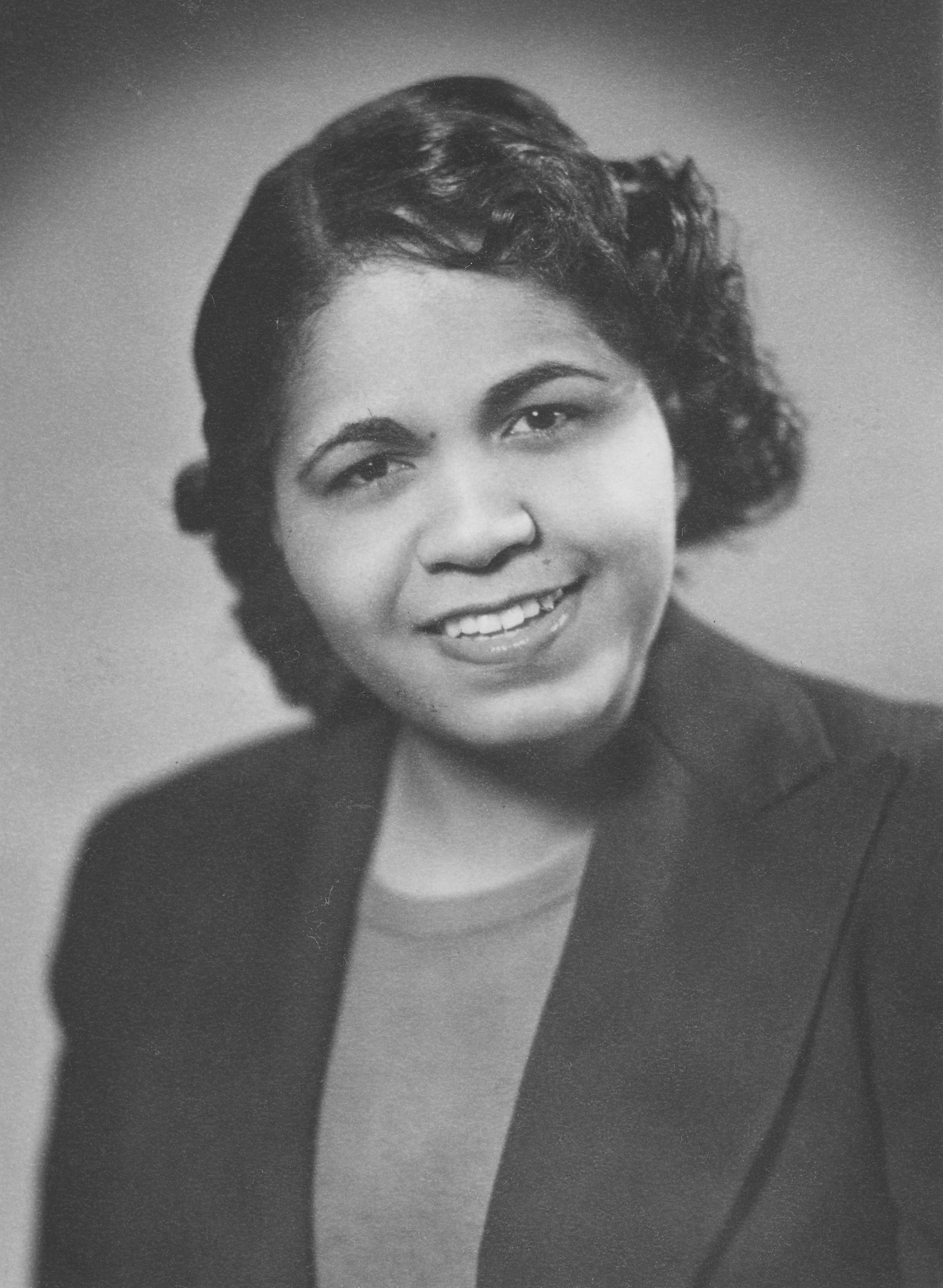Home / History Blog / Ward Rounds | 1945 | Thelma Brown Pendleton, RN, BS
Ward Rounds | 1945 | Thelma Brown Pendleton, RN, BS

Thelma Brown Pendleton, RN, BS, circa 1946.
Image courtesy of the Dept. of Physical Therapy and Human Movement Sciences, Galter Library Special Collections
Thelma Brown Pendleton, RN, BS: PT Pioneer
Thelma Brown Pendleton was born on January 30, 1910, in Rome, Georgia, to John O. Brown, who moved to Gary, Indiana, to work in a steel mill when Thelma was 5, and Susie Baisden, who worked as a laundress. By 1930, Pendleton was living in Chicago and attending the nursing school of Provident Hospital. In 1931 Pendleton graduated and spent the next 14 years working as a nurse in Chicago, first at the Rosenwald Foundation, a philanthropic organization started by Sears, Roebuck and Company owner Julius Rosenwald; then at the Chicago Visiting Nurse Association; and finally at Provident Hospital, where she was also president of the nursing school’s alumnae association. During her training to become a nurse, her younger brother passed away from spinal meningitis at the age of 15. His loss had a significant impact on Pendleton, and she credited his struggle and eventual death as her inspiration to pursue a career in physical therapy.
After years of service in public health, Pendleton secured a scholarship from the National Foundation for Infantile Paralysis (better known as the March of Dimes) and enrolled in Northwestern University Medical School’s physical therapy (PT) program in July 1945. Prior to 1945, the program denied the applications of Black health science students because the school could not ensure equal clinical opportunities. The Chicago Visiting Nurse Association was the first organization to provide clinical positions to Black PT students on the condition that they were also trained nurses. Thus, Thelma Brown Pendleton and Magnolia Bates—both trained public health nurses—became the first Black students accepted into the physical therapy program. While at Northwestern, Pendleton was voted the best clinician in her class.
Upon graduating, she became the fifth formally trained Black physical therapist in the country. In March 1947, she married insurance salesman George W. Pendleton, and shortly after, Pendleton returned to work at Provident Hospital, where she established a physical therapy program. She ran the program until 1955 while also making a name for herself in the larger physical therapy community: In 1952 she was selected to join the Physical Therapy Examining Committee of the Illinois State Department of Registration and Education, becoming its first Black member. She also published an article in the journal Physical Therapy.
After leaving Provident in 1955, Pendleton continued her work as a leading pediatric physical therapist in Chicago. She first worked at Parents Association Incorporated, which ran the South Side Training Center for children with cerebral palsy, where she devised many tools and methods to help the children live more independently. In an article in the Chicago Defender, the chairman of the center referred to Pendleton as “the finest [physical therapist] in the country.” She also worked at United Cerebral Palsy of Greater Chicago’s Piper Portal Schools, and she spent the last years of her career at La Rabida Children’s Hospital, where she served as chief physical therapist. Throughout this time, Pendleton continued her connection with Northwestern by regularly supervising clinical instructor education programs.
Pendleton nominally retired in 1975; however, she kept active, personally and professionally, in her later years. She continued working part time as a physical therapist at various schools and hospitals throughout the city; co-authored a 1981 book Patient Positioning: A Handbook for Those Directly Involved in Patient Care; and even published a cookbook, Low Budget Gourmet: A Cookbook That Teaches Thrift, in 1977.
Thelma Brown Pendleton died in Chicago on September 30, 1998. In the early 1990s, the Support Organization for Minority Physical Therapists recognized Pendleton’s importance in the field by creating the Evans-Pendleton Student Scholarship Fund. In recent years, many organizations, including the American Physical Therapy Association and the Illinois Physical Therapy Association, have acknowledged her legacy as a pioneer in the field of physical therapy.
Emma Florio is the special collections library assistant at the Galter Health Sciences Library and Learning Center. Learn more and read the full article.
